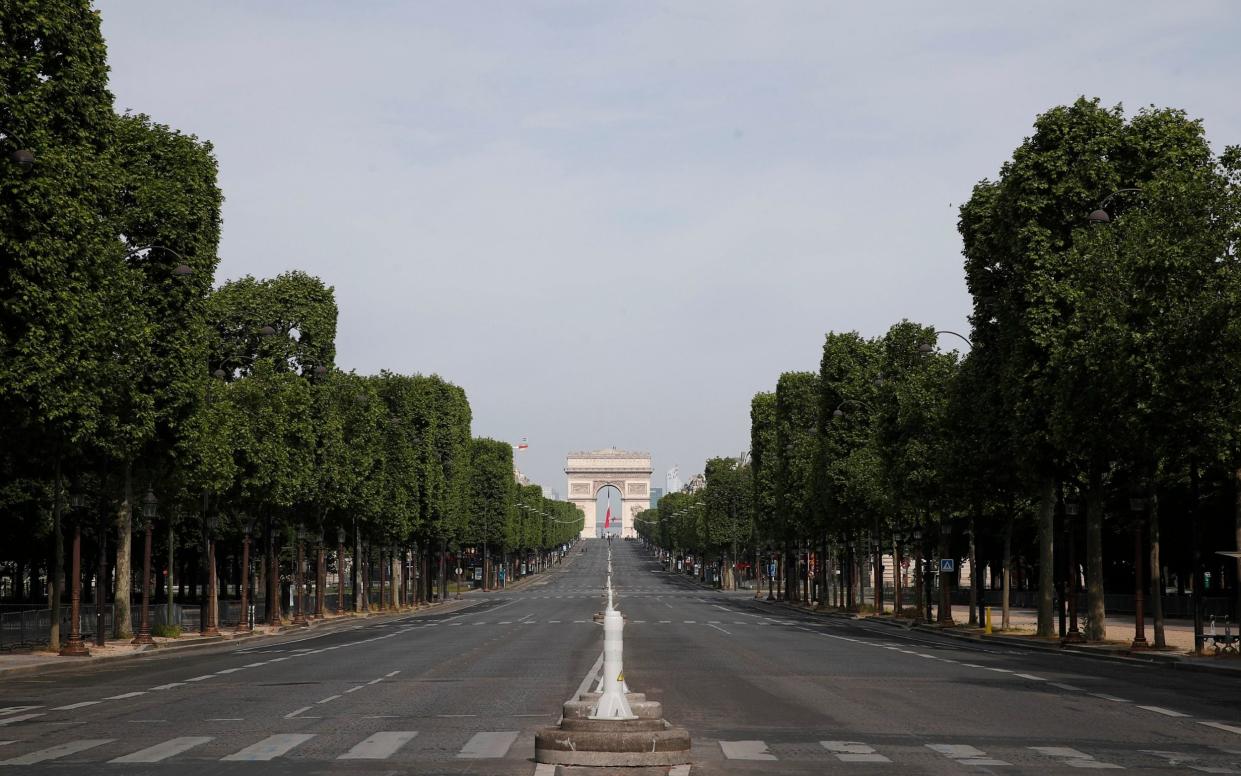France and Spain open up – but Paris, Madrid and Barcelona face stricter lockdowns

With Europe poised to ease lockdown next week, long-suffering residents of some of its biggest cities have been told they will enjoy less freedoms while levels of infections and hospitalisations remain perilously high in urban areas.
After two months of draconian confinement, the French are champing at the prospect of being able to travel more than a mere kilometre from their door once a day starting next week, to return to parks and even beaches and and send children back to primary school.
In Spain, Madrid and Barcelona were excluded from some of the plans to loosen restrictions amid fears that the disease was not under sufficient control to risk a return to some level of normal.
The hesitancy could create a two-speed lockdown exit that will ring alarm bells in the UK, where London has recorded far more infections than anywhere else.
A new map of France unveiled by the prime minister showed a country “cut in two” with regions in the top northeastern most corner, including Paris, classified as a “red” because infections remain high and hospitals are still approaching capacity.
"In the Paris region, the infection rate is falling slowly, but it remains very high, higher than we expected. That is why in these territories we will need to be extra vigilant,” said prime minister Edouard Philippe.
France is one of the worst-affected nations with 25,987 deaths, some 6,390 of them in the Paris area.
That meant, said Mr Philippe, that in Paris only people with a certificate from their employer or with an urgent need will be allowed to use rush-hour public transport, where masks will be compulsory for anyone over 11 on pain of a €135 fine.
Parks and gardens will remain shut for now whereas they will be gradually opening in other regions, along with beaches.
While secondary schools will be gradually opened around the country, with a million pupils due to return to classes next week, in Paris they will remain largely shut. Paris mayor Anne Hidalgo joined more than 300 mayors in the Paris area in signing a petition last week warning they were not ready to re-open schools from May 11.
In other parts of France, cafes and restaurants may open from early June if the infection rate remains low. However, the prime minister offered no such glimmer of hope to Parisians, even adding: "The distinction between green and red might tend to widen from June.”
Like the rest of the country, Parisians will no longer need to carry a form to leave home, but papers will be needed for trips exceeding a radius of 100 km (62 miles), which will be only allowed for professional reasons, funerals or caring for the sick.
In one piece of good news for shoppers, however, all but the biggest stores will be allowed to re-open as long as they respect safety and distancing measures. That includes half of the boutiques on the famed Champs-Elysées.
Meanwhile, Spain’s two biggest cities, Madrid and Barcelona, are set to be held back from joining most of the country on the starting line for the government’s lockdown exit strategy from Monday.
Most of Spain’s regional governments have proposed to that their entire territory be allowed to enter phase 1 of a gradual de-escalation of restrictions, which effectively would allow people to move freely as small social gatherings of up to 10 people are to be allowed, as well as the partial reopening of bars and cafés with outdoor seating.
There was surprise that Madrid, Spain’s worst-affected region accounting for one-third of the country’s 26,299 death toll, was among those seeking a relaxation of its lockdown.
The regional director of public health resigned on Thursday in protest, but Madrid president Isabel Díez Ayuso said citizens had to accept a level of risk in order to reactive the local economy.
“The virus is going to be with us for two years. We will have to learn to live with it with face masks and taking precautions,” the conservative Popular Party politician said.
However, Madrid's request was denied and lockdown maintained in the capital.
Other regional authorities are taking a more cautious approach, including Catalonia, which has only requested phase 1 status for Tarragona and parts of the Pyrenees, with urban areas such as Barcelona and its suburbs, Girona and Lleida, deemed to be less prepared for the risk of an upsurge in cases.
Elsewhere, Castilla y León has said that none of its cities, including León, Burgos and Segovia, are ready to ease confinement measures, and Andalusia is also maintaining lockdown measures in Granada and Malaga.

